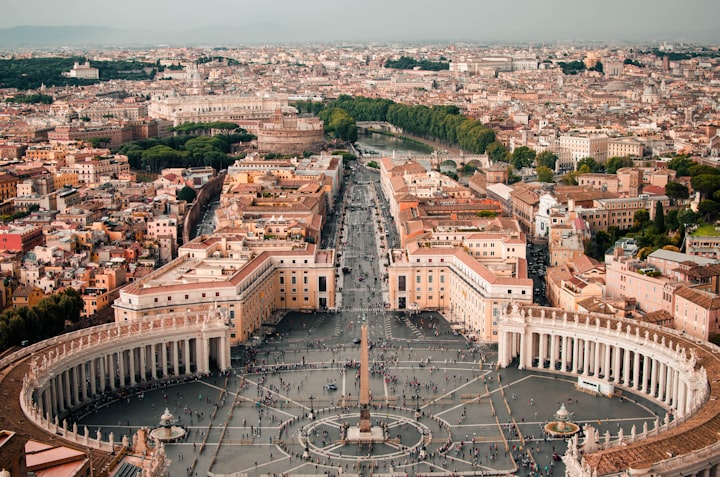
Pope Francis has recently made significant changes to the Vatican City State by appointing new judges to its Court of cassation, also known as the "supreme court." These appointments are part of the pope's ongoing efforts to overhaul the Vatican's constitutional framework and to separate governance from ecclesiastical operations. However, the appointment of cardinals without legal backgrounds to the court has raised concerns about their ability to effectively handle the complex caseload of Vatican City's criminal courts.
The Vatican City judicial system has traditionally operated alongside the universal canonical legal system. While canon law forms the basis of the Vatican's civil system, much of its criminal law is derived from the Italian legal system. Recent high-profile cases have highlighted the need for specialized expertise in both canon law and the older version of the Italian criminal code.
In previous reforms, Pope Francis appointed lay judges with specialized legal knowledge to the city-state's courts. However, in the recent announcement, he appointed cardinals without legal expertise to the court of cassation, along with two lay Italian legal scholars. This move appears to contradict the pope's efforts to include more lay participation in the executive and legislative branches.
Critics argue that this change undermines the credibility of the court and turns it into a politically influenced institution lacking sufficient legal expertise. However, it is unlikely that the pope's intention is to subvert the legal process, as he has already implemented broader reforms to distance governance from curial dependence.
The ongoing trial of Cardinal Angelo Becciu, who faces corruption and embezzlement charges, will be heard by the lay judges of the Vatican's Court of first instance. Pope Francis previously changed the law to subject cardinals to the ordinary court and appeal process, indicating that any appeal in Becciu's case would not necessarily reach the court of cassation.
Although the motives behind the pope's appointments remain unclear, this move is seen as a setback for the credibility of the Vatican City judicial system. The trial's focus on financial scandal has already drawn scrutiny and criticism. Some observers suggest that the pope may be attempting to solidify the separation of Vatican City governance from the Roman curia by reforming the court of cassation and reducing the influence of the Apostolic Signatura.
The nomination of Cardinal Kevin Farrell as the court's president could be an effort to give the camerlengo a formal role in the city-state's judiciary, particularly during a papal sede vacante. However, the Holy See's press office did not mention Farrell's title as camerlengo in the official announcement, creating confusion regarding his role.
Overall, the changes to the Court of cassation raise questions about the direction of the Vatican City judicial system and its ability to handle complex legal cases. While some speculate about the underlying motives behind these appointments, it remains clear that the changes have sparked concerns about the system's credibility and effectiveness.
One of the key aspects that have come under scrutiny is the appointment of cardinals without legal backgrounds to the court of cassation. Critics argue that the lack of legal expertise among the appointed cardinals undermines the court's ability to effectively interpret and apply the law. The handling of complex criminal cases requires a deep understanding of both canon law and the Italian legal system, and it is unclear how cardinals without legal training can adequately fulfil this role.
Moreover, the appointment of cardinals without legal backgrounds raises concerns about the potential politicization of the Court. The Vatican City judicial system should be independent and impartial, free from any external influence. However, with the inclusion of cardinals who may have closer ties to the ecclesiastical hierarchy, there is a risk that the court's decisions could be swayed by political or religious considerations rather than a strict adherence to the law.
Another point of contention is the balance between lay and ecclesiastical participation in the court. Pope Francis has previously emphasized the importance of increasing lay involvement in the decision-making processes of the Vatican. By appointing lay judges with specialized legal knowledge to the city-state's courts, he aimed to bring in diverse perspectives and ensure a more inclusive and transparent judicial system. However, the recent appointments of cardinals without legal expertise seem to contradict this principle, raising concerns about the pope's commitment to lay participation.
The ongoing trial of Cardinal Angelo Becciu further highlights the significance of these changes. By subjecting cardinals to the ordinary court and appeal process, Pope Francis demonstrated his determination to hold members of the clergy accountable for their actions. This shift in approach represents a departure from the past, where cardinals enjoyed a certain level of immunity and were judged by ecclesiastical courts. However, the composition of the court of cassation, which will handle any appeals in Becciu's case, now raises questions about the expertise and impartiality of the judges involved.
It is worth noting that the motives behind the pope's appointments are not entirely clear. Some speculate that he may be aiming to consolidate the separation of Vatican City governance from the Roman curia, the administrative body of the Catholic Church. By reforming the court of cassation and reducing the influence of the Apostolic Signatura, the highest judicial authority in the Catholic Church, the pope may be signalling a shift towards a more independent and autonomous Vatican City State.
However, without clear explanations from the Vatican, these speculations remain speculative. The lack of transparency regarding the decision-making process and the rationale behind the appointments contributes to the concerns and doubts surrounding the changes to the Court of cassation.
In conclusion, the recent changes to the court of cassation in the Vatican City State, including the appointment of cardinals without legal backgrounds, have sparked significant debate and raised concerns about the credibility and effectiveness of the judicial system. The inclusion of individuals without legal expertise and the potential politicization of the court threaten its ability to handle complex legal cases impartially and in accordance with the law. As the Vatican City continues to navigate these reforms, it is crucial to ensure that the judicial system maintains its independence and upholds the principles of justice and fairness. Clear explanations and transparency from the Vatican regarding these appointments would go a long way in addressing the concerns and restoring confidence in the system.
About the Creator
Phillip S
Kool awesome dude.......






Comments
There are no comments for this story
Be the first to respond and start the conversation.